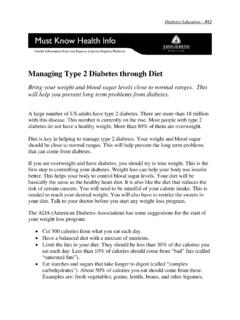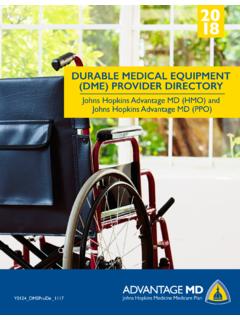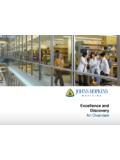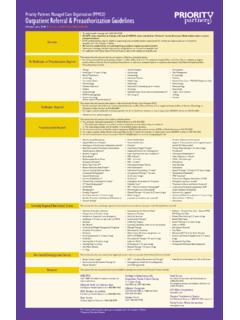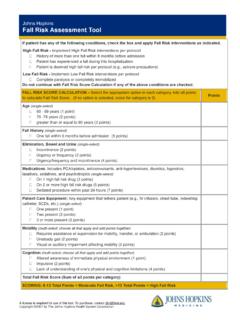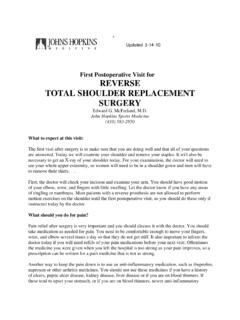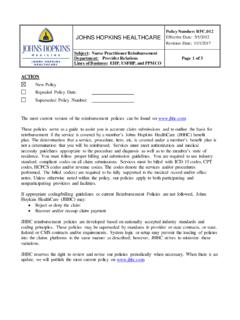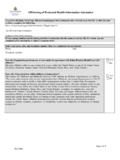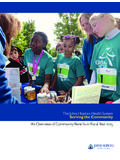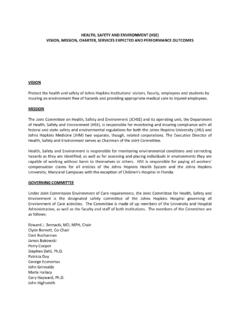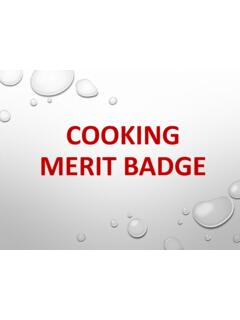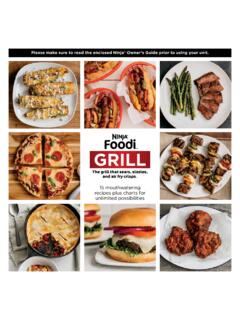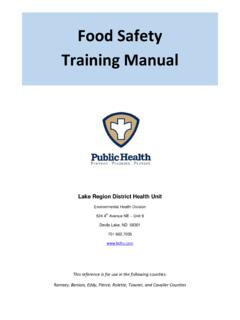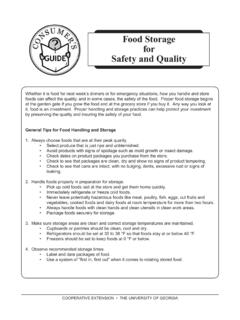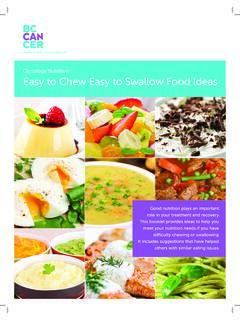Transcription of NUTRITION AND FOOD SAFETY
1 NUTRITION AND food SAFETY Medications, Recreational Substances and Supplements Many medications and supplements can interact with your transplant medications. This can cause you to feel unwell and can even lead to severe problems including the loss of your transplanted organ. Any time you plan to change, start, or stop a medication, please call the transplant office and ask to speak to your coordinator. In general, we do not recommend ANY herbal supplements after transplant. There are a few reasons for this: Manufacturers are not required to prove an herbal product is effective or safe.
2 Herbal products are not standardized. You may get different amounts of the ingredients in each bottle of an herbal product, even if it is the same manufacturer. There is often little information on how herbal supplements interact with transplant medications. Without knowing if a supplement may hurt you, we would recommend that you do not use it. Some of your transplant medications can cause your body to lose vitamins and minerals. Based upon your routine blood work, your transplant team may ask you to take more or less vitamins and/or supplements.
3 While most vitamins and minerals are safe to take, please do not take them unless approved by your transplant team. food Most foods and drinks are completely safe for you to take after transplant. Please AVOID grapefruit, pomegranate, pomelo, blood orange, and black licorice, as these can increase the amount of anti-rejection medication in your body and this could harm you. Marijuana in any form can increase drug levels of your rejection medications and should never be used. Some spices in large amounts may effect drug levels, such as ginger and turmeric.
4 NEVER take medications or supplements without calling the transplant office This includes herbals, homeopathic products, vitamins, and minerals. This includes medications prescribed by anyone that is not a part of the transplant team. Do NOT TAKE foods that contain: pomegranate, pomelo, grapefruit, black licorice, marijuana, and marijuana derived products (which included CBD oil and hemp seeds). Please refer to food SAFETY for Transplant Recipients: A need-to-know guide for bone marrow and solid organ transplant recipients for more information.
5 For more information on food SAFETY , food outbreaks as well as general food SAFETY recommendations: NUTRITION AND food SAFETY food SAFETY Immunosuppressive medications are important, as they protect your transplanted organ. A side effect of these medications is that they leave you more susceptible to developing foodborne illness from raw or undercooked foods. After transplant you must be careful when handling, preparing, and consuming foods. Four Basic Steps to food SAFETY : 1. Clean: Wash hands and surfaces often 2. Separate: Separate raw meats from other foods 3.
6 Cook: Cook to safe temperature 4. Chill: Refrigerate promptly SAFE EATING TIPS: Ensure all food is properly cooked Do NOT eat any raw or undercooked meats, proteins, dairy or egg products; this includes sushi, raw cookie dough/cake batter, over-easy eggs Reheat all leftovers Microwave or cook all lunch meats Avoid buffets Do not use wooden cutting boards Use separate cutting boards/utensils for raw meats Make sure all products are pasteurized Wash all fruits and vegetables thoroughly Only eat at safe, clean, trusted restaurants Do not eat food that has been sitting out or exposed to direct sunlight.
7 Such as at picnics NUTRITION AND food SAFETY Type of food AVOID SAFE Meat and Poultry Raw or undercooked meat or poultry Meat or poultry cooked to a safe minimum internal temperature *Use a meat thermometer to check the internal temperature of food seafood Any raw or undercooked fish, or shellfish, or food containing raw or undercooked seafood , sashimi, found in some sushi or ceviche. Refrigerated smoked fish Partially cooked seafood , such as shrimp and crab Previously cooked seafood heated to 165 F Canned fish and seafood seafood cooked to 145 F Milk Unpasteurized (raw) milk Pasteurized milk Eggs Foods that contain raw/under cooked eggs, such as: Homemade Caesar salad dressings* Homemade raw cookie dough* Homemade eggnog At home: Use pasteurized eggs/egg products when preparing recipes that call for raw or under cooked eggs When eating out.
8 Ask if pasteurized eggs were used and yolks cooked *Most pre-made foods from grocery stores, such as Caesar dressing, pre-made cookie dough, or packaged eggnog are made with pasteurized eggs Sprouts Raw sprouts (alfalfa, bean, or any other sprout) cooked sprouts Vegetables Unwashed fresh vegetables, including lettuce/salads Washed fresh vegetables, including salads cooked vegetables Cheese Soft cheeses made from unpasteurized (raw) milk, such as: Feta Brie Camembert Blue-veined Queso fresco Hard cheeses Processed cheeses Cream cheese Mozzarella Soft cheeses that are clearly labeled made from pasteurized milk Hot Dogs and Deli Meats Hot dogs, deli meats, and luncheon meats that have not been reheated Hot dogs, luncheon meats, and deli meats reheated to steaming hot or 165 F *Reheat hot dogs, deli meats before eating them.
9 P t s Unpasteurized, refrigerated p t s or meat spreads Canned or shelf-stable p t s or meat spreads HEALTHY NUTRITION A healthy diet is just as important after lung transplant as it was before transplant. The focus after transplant centers around providing adequate calories and nutrients for wound healing and getting you back on your feet as quickly as possible. As you heal, recommendations may change. After the first few months, you may need to make adjustments to your diet. You, along with a dietitian, will come up with health goals and an eating plan that will keep you safe and meets your specific nutritional needs.
10 Your diet immediately following surgery: 1. Eat higher amounts of protein to help with wound healing. Extra protein may also be needed to help prevent muscle breakdown related to high doses of steroids. Protein rich foods: Fish, poultry, beef, lamb, pork Nuts and seeds Dairy products, eggs Soy products, legumes or lentils 2. Reduce sodium if you have fluid retention or high blood pressure. Limit your intake of: Canned Soups Processed meats/lunch meats Frozen entrees Convenience and processed foods Condiments Fast Foods 3.
